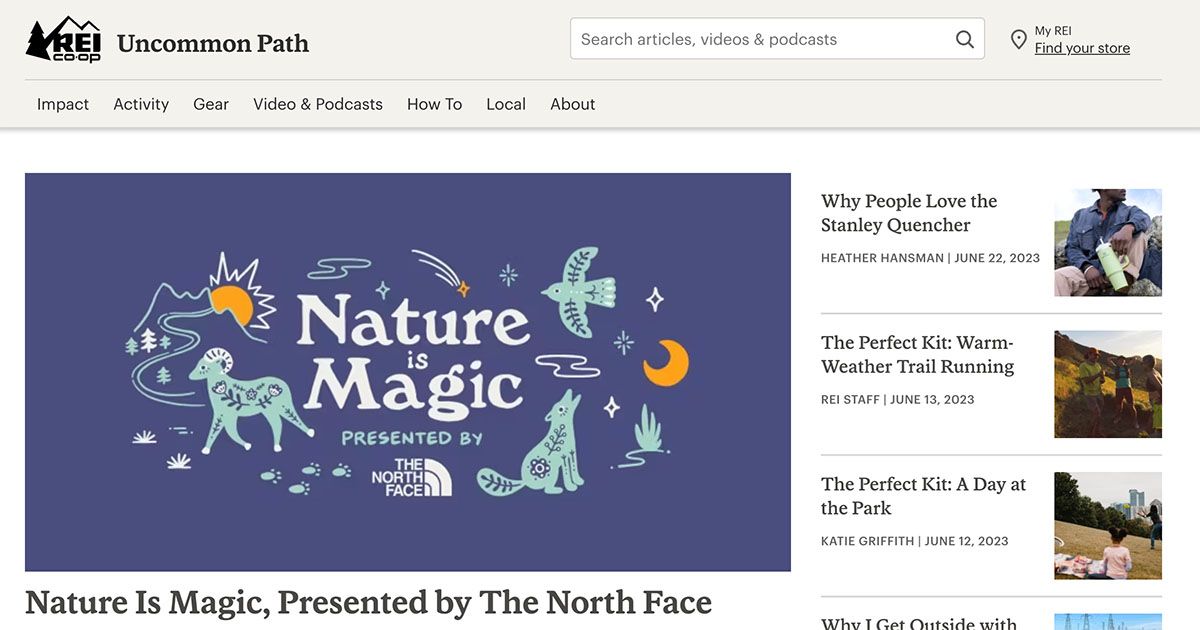Blogging and Ecommerce: Forever Friends
One of the best ways to monetize your blog is to sell a product. In this context, ecommerce —or selling a product online— can mean selling anything from a checklist or Notion template to a physical product. Find an item that makes good sense for your blog's audience and sell it.

If you want to earn money blogging, sell a product. You see, blogging and ecommerce make a wonderful pair keen to earn predictable income.
As we noted in the article, "8 Ways to Earn Money with a Blog or Newsletter," if we pretend we have an online store and we are looking for ways to promote our products, our marketing list will look something like search engine optimization (SEO), paid advertising, and —here it comes— content marketing.
It turns out that in modern internet parlance, content marketing looks an awful lot like content marketing. A blog post and a content marketing article are both meant to attract, engage, and retain an audience.
Ecommerce Content Marketing
Let's use omnichannel equipment retailer REI as an example. REI's online store is absolutely about selling products. But it is also content rich.
Expert Advice — this section of the REI site features product guides, how-to articles, and generally helpful content. It could be a standalone blog.
Uncommon Path — this is what REI calls its "blog." Here you will find stories about individuals, gear, and adventures. It, too, could be a blog even in the absence of its parent company.

Why does REI produce blog-like content? Because content is a powerful way to create an audience who, in return for all of your great and helpful posts, is likely to buy from you.
Monetizing a Blog
Let's turn our attention back to blogging. You have a voice. There is content you want to put out in the world. But you also want to make some money along the way.
Selling a product is one of the very best ways to do it. This does not mean you need to turn your content business, i.e., your blog, into an ecommerce store, per se. Instead, it means offering your audience of readers relevant and related products to buy.
Here are a few examples.
Sell your own merchandise. Imagine you have a blog about puppies called Wonder Dog. You could have your own line of collars, leashes, and puppy-parent t-shirts.
Sell related products. In a similar way, a blog about comic book culture could also have an associated classic comic book shop wherein you sell rare books, comic-related toys, and licensed t-shirts.
Sell digital products. A marketing blogger might offer an SEO checklist Notion template or similar. The template itself could be the subject of several blog posts so that it not only generates revenue when sold but topics too.
Sell ebooks. A blog focused on fitness and health can publish any number of health-related electronic books, publishing them on Amazon and Audible and promoting them with the blog and its associated newsletter. A favorite tactic here is to write, say, 50 blog posts about gut health and then combine those posts into a book.
Sell online courses. If you have a blog about investing, you could create a video course about long-term investing and planning for retirement. The course would take some upfront work, but could generate passive income for years. Each new post on your blog could promote it.
Friends Forever
To paraphrase the 1994 movie Forrest Gump, "Blogging and ecommerce goes together like peas and carrots."
One of the best ways to monetize your blog is to sell a product. In this context, ecommerce —or selling a product online— can mean selling anything from a checklist or Notion template to a physical product. Find an item that makes good sense for your blog's audience and sell it.